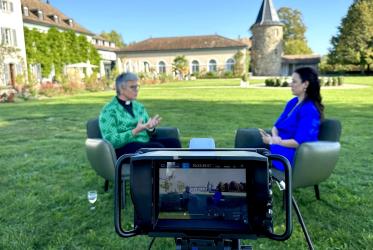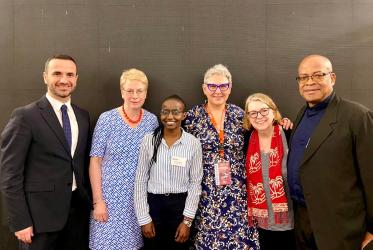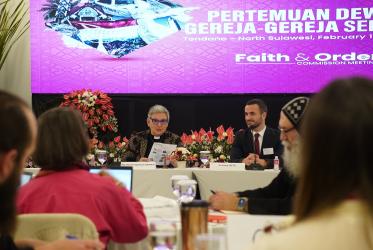(Faith and Order Paper no. 199)
This text, resulting from the Faith and Order study on Theological Anthropology, explores contemporary challenges to the traditional understanding of humanity as "made in the image of God". It concludes with 10 Common Affirmations as a basis for the churches common reflection - and action - wherever human value and dignity is challenged.
Jump to the bottom of this page to download the text (pdf)
Table of Contents
Background
Introduction
A. THEOLOGICAL ANTHROPOLOGY
B. METHOD
I. Contemporary Challenges
A. BROKENNESS
1. Violence
2. Poverty
3. HIV/AIDS
B. DISABILITY
1. Identity and the challenge of diversity
2. Disability and the norm of "perfection"
3. Disability: an embodied perspective
C. NEW TECHNOLOGIES
1. Developments in genetics: implications and options
2. Developments in artificial intelligence research: implications and limitations
II. A Theological Response
A. LAMENT AMID SUFFERING
B. CREATED IN THE IMAGE OF GOD
1. Jesus Christ as the image of God
2. The mystery of human being
3. The image of true humanity is not alien to any community
4. Christian understanding and the struggles and insights of the wider world
5. The image of true humanity is not known in the abstract
6. Persons and relationship
7. The image of God as relational
8. The dignity of each person
9. True humanity and false human "ideals"
10. The divine image gives value to all human lives
11. Human life as growing in the image
12. Human embodiment
13. Theology and experience
C. THE PLACE OF HUMANITY WITHIN CREATION AS A WHOLE
1. Relationship with that which is other than ourselves
2. The relationship of humans to the rest of creation
D. SIN AND THE IMAGE OF GOD
1. The nature of sin is made clear by reflection on God's image
2. The radical nature of sin
3. Sin in the context of hope
E. THE NEW CREATION IN CHRIST
1. New life offered to the world in Christ
2. Interpretations of Christ's reconciling work
3. The human appropriation of new life
4. Baptism and new humanity in Christ
5. The eucharist
6. Christian anthropology and hope
III. A Call to the Churches
A. A BASIS FOR COMMON CONFESSION, REFLECTION, WITNESS AND SERVICE
1. Common understandings
2. Legitimate - and other - diversity
B. FACING CHALLENGES TOGETHER
C. TEN COMMON AFFIRMATIONS
D. INVITATION TO THE CHURCHES



